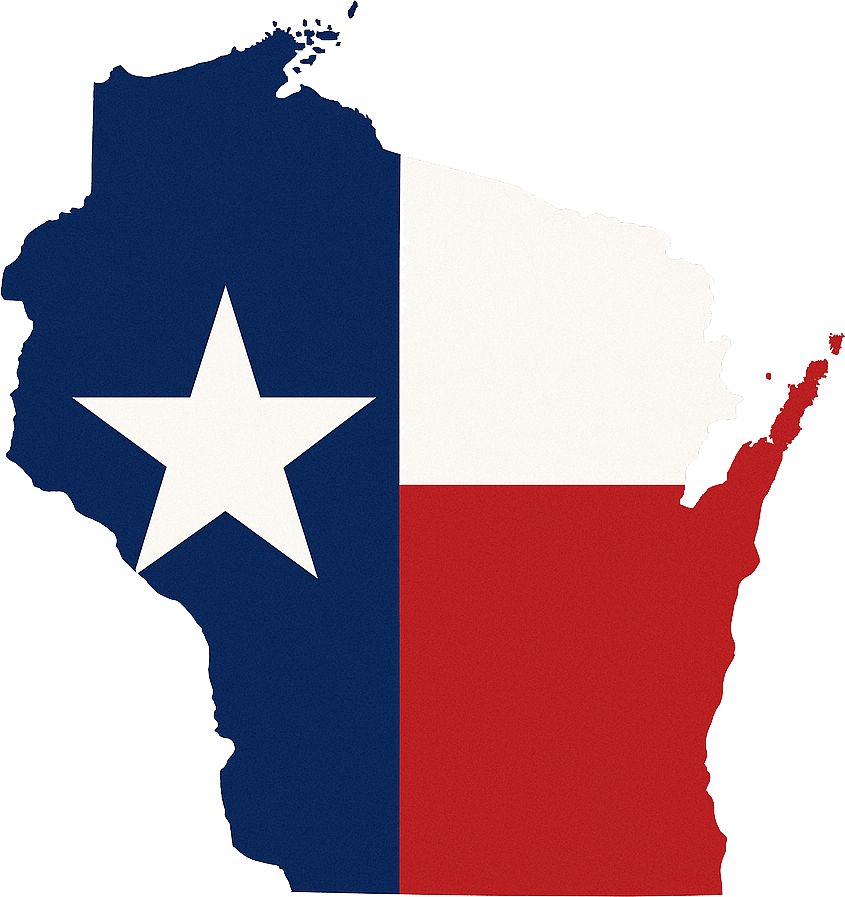
RRP PrimaryGuard
PrimaryGuard: Closing Open Primaries to Protect the GOP from Within
The RINO Removal Project’s PrimaryGuard is a bold, strategic initiative to end open and semi-open primaries in key battleground states where the future of the Republican Party is most at risk. These states allow Democrats and independents to vote in Republican primaries, often tipping the balance in favor of moderate RINOs instead of America First candidates.
With the next major election cycle in 2026, the time to act is now. PrimaryGuard’s mission is clear: close the primaries, shut down RINO protection schemes, and return the nomination power to Republican voters only.
Why Open Primaries Undermine America First
Open and semi-open primary systems allow non-Republicans to vote in Republican primaries, leading to the nomination of candidates who do not reflect conservative values or grassroots priorities. These crossover votes routinely help establishment-backed RINOs win, diluting the voice of true conservatives and derailing America First progress.
PrimaryGuard exists to eliminate this vulnerability.
RRP Impact in Key States
Among the battleground states with open primaries—Georgia, Michigan, North Carolina, Wisconsin, Texas, Ohio, and Virginia—we rank the top 5 based on their competitiveness in recent GOP electoral outcomes and their strategic importance for Republicans in 2025/2026:

Georgia:
Primary Date: TBD (Typically May)
Primary Type: Open
Details: Georgia operates an open primary system where voters, regardless of party registration, can choose either the Democratic or Republican primary ballot on Election Day. Unaffiliated voters can also select a party’s ballot. Voters are limited to one party’s primary and cannot cross party lines within the same election. This system encourages broader participation but may lead to strategic voting across party lines.
Overview: Georgia is a pivotal Sun Belt battleground that flipped to Biden in 2020 by only 11,779 votes (0.2%). Since then, Republicans have regained momentum, with Governor Brian Kemp winning reelection in 2022 by 7.5%. But Georgia still has an open primary, allowing independents and Democrats to vote in Republican contests—posing a major risk to the America First movement.
Trump Margin of Victory: 2.2%
Raw Vote Difference: 115,099 votes
– Trump: 2,665,609 votes (50.9%)
– Harris: 2,550,510 votes (48.7%)
PrimaryGuard’s mission: Close Georgia’s primary before 2026 to secure future GOP victories.

Wisconsin:
Primary Date: TBD
Primary Type: Open
Details: Wisconsin has an open primary system, allowing voters to choose either the Democratic or Republican primary ballot without regard to their party affiliation. Unaffiliated voters can also participate. Voters must select one party’s ballot and cannot vote in both primaries, ensuring they only influence one party’s nominee. This system maximizes voter flexibility but may allow cross-party voting.
Overview: A critical Blue Wall state, Wisconsin has been defined by razor-thin margins: Trump won by 0.7% in 2016, Biden by 0.6% in 2020. Its open primary system invites crossover voting, letting liberal voters influence GOP nominees in a deeply divided state.
Margin of Victory: 0.8%
Raw Vote Difference: 29,397 votes
– Trump: 1,711,365 votes (49.8%)
– Harris: 1,681,968 votes (49.0%)
PrimaryGuard will work to shut down crossover voting before it derails future conservative victories.

Michigan:
Primary Date: August 4, 2026
Primary Type: Open
Details: In Michigan, voters can select either the Democratic or Republican primary ballot without being registered with a political party. Unaffiliated voters are also eligible to vote in either primary. Like other open primary states, voters are restricted to one party’s ballot per election, preventing them from voting in both primaries. This system allows broad participation, including by independents.
Overview: Michigan flipped to Trump in 2016 by 0.2%, then back to Biden in 2020 by 2.8%. Despite its swing status, Michigan allows open primaries, where non-Republicans vote in GOP contests—handing power to voters who do not support Republican values.
Margin of Victory: 1.4%
Raw Vote Difference: 80,103 votes
– Trump: 2,801,374 votes (50.3%)
– Harris: 2,721,271 votes (48.9%)
PrimaryGuard aims to close Michigan’s primary system before it weakens conservative influence any further.

North Carolina:
Primary Date: TBD (Typically March)
Primary Type: Semi-Open
Details: In North Carolina, voters registered with a specific party (e.g., Democratic or Republican) can only vote in their party’s primary to select nominees. However, unaffiliated voters (those not registered with a party) have the flexibility to choose either the Democratic or Republican primary ballot on Election Day.
Voters cannot vote in both party primaries; they must select one party’s ballot.
This system allows independent voters to participate in choosing party nominees while restricting party-affiliated voters to their own party’s primary, balancing inclusivity and party control.
Overview: Trump won North Carolina in 2020 by 1.3%, but the state’s semi-open primary system lets unaffiliated voters choose Republican ballots. As the number of unaffiliated voters grows, so does the risk of diluting America First momentum in GOP nominations.
PrimaryGuard is organizing to close North Carolina’s primaries and ensure only Republicans vote in Republican contests.

Texas:
Primary Date: TBD (Typically March)
Primary Type: Open
Details: Texas uses an open primary system where voters can choose to vote in either the Democratic or Republican primary on Election Day, regardless of their party affiliation. Unaffiliated voters can also participate. Voters must select one party’s ballot and cannot vote in both primaries. Notably, Texas records which party’s primary a voter participates in, which may influence their eligibility for party-specific activities (e.g., conventions).
Overview: Though traditionally red, Texas is rapidly becoming more competitive. Trump’s margin dropped from 9% in 2016 to 5.6% in 2020. In a high-stakes Senate race like Ted Cruz vs. Colin Allred, open primaries give independents—and even Democrats—the power to shape GOP outcomes in critical down-ballot races.
Margin of Victory: Approximately 12.2%
Raw Vote Difference: Approximately 1,374,090 votes
– Trump: 6,136,234 votes (55.5%)
– Harris: 4,762,144 votes (43.3%)
PrimaryGuard’s goal is to shut the door on open primaries and preserve Texas’s conservative identity.

South Carolina:
Primary Date: TBD (Typically June)
Primary Type: Open
Details: In South Carolina, voters can choose either the Democratic or Republican primary ballot regardless of their party affiliation. Unaffiliated voters can also participate, but voters must select one party’s ballot and cannot vote in both primaries. This system allows independents and voters from one party to influence the other party’s nominee, though they can only vote in one primary per election cycle.
Overview: Though South Carolina is a red state, its open primary system enables non-Republicans to select Republican candidates, especially during its influential early presidential primary. This elevates moderate, establishment-aligned candidates while pushing America First voices aside.
Trump 2024 Margin of Victory: Approximately 13.8%
Raw Vote Difference: Approximately 370,684 votes
– Trump: 1,424,614 votes (55.8%)
– Harris: 1,053,930 votes (42.0%)
PrimaryGuard is committed to closing South Carolina’s primary, restoring ideological consistency and putting power back into the hands of Republican voters.
The PrimaryGuard Strategy
To close open primaries and secure America First nominations, PrimaryGuard deploys a multi-pronged approach:

🏛 Legislative Advocacy – Support bills and lawmakers fighting to close primaries in target states
📢 Voter Education – Raise awareness among conservatives about the dangers of open primaries
🤝 Coalition Building – Unite grassroots groups, influencers, and strategic partners to build momentum
📲 Digital Mobilization – Leverage our 19M+ X.com network to amplify messaging and drive action
The Stakes: RINOs Stay in Power Without Primary Reform
RINOs survive because the system protects them. Open and semi-open primaries allow non-Republicans to prop up moderates who side with Democrats, weaken the GOP platform, and silence conservative voters.
If we don’t close the primaries, we risk losing the Republican Party to career politicians and globalist interests.
But with PrimaryGuard, we have the tools, the team, and the timeline to stop it.
🛡 Help Close the Primaries—Join PrimaryGuard Now
The 2026 primaries are fast approaching. Every day we wait is another day RINOs strengthen their hold on the GOP.
Your support helps fund grassroots organizing, legislative campaigns, digital media, and legal action to end open primaries once and for all.
Together, we’ll secure the ballot, purge the RINOs, and restore the Republican Party to its America First foundation.
👉 Contribute now to fuel PrimaryGuard
